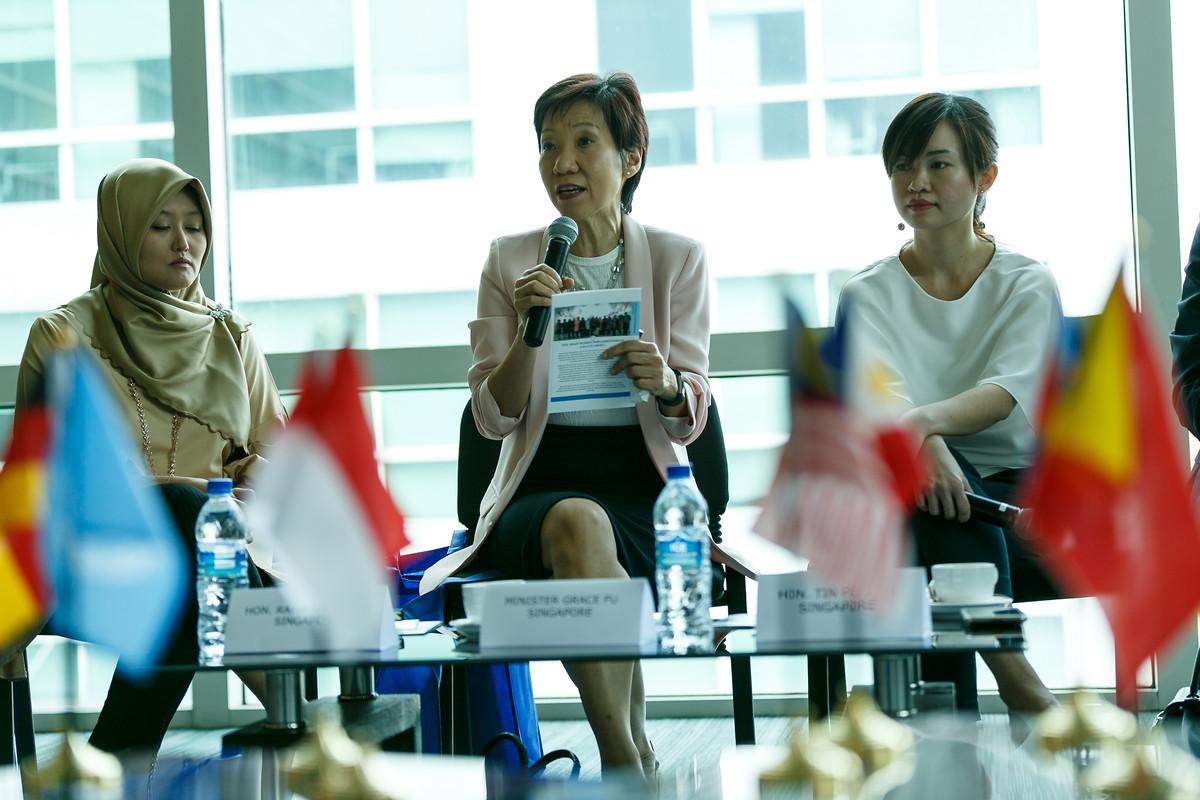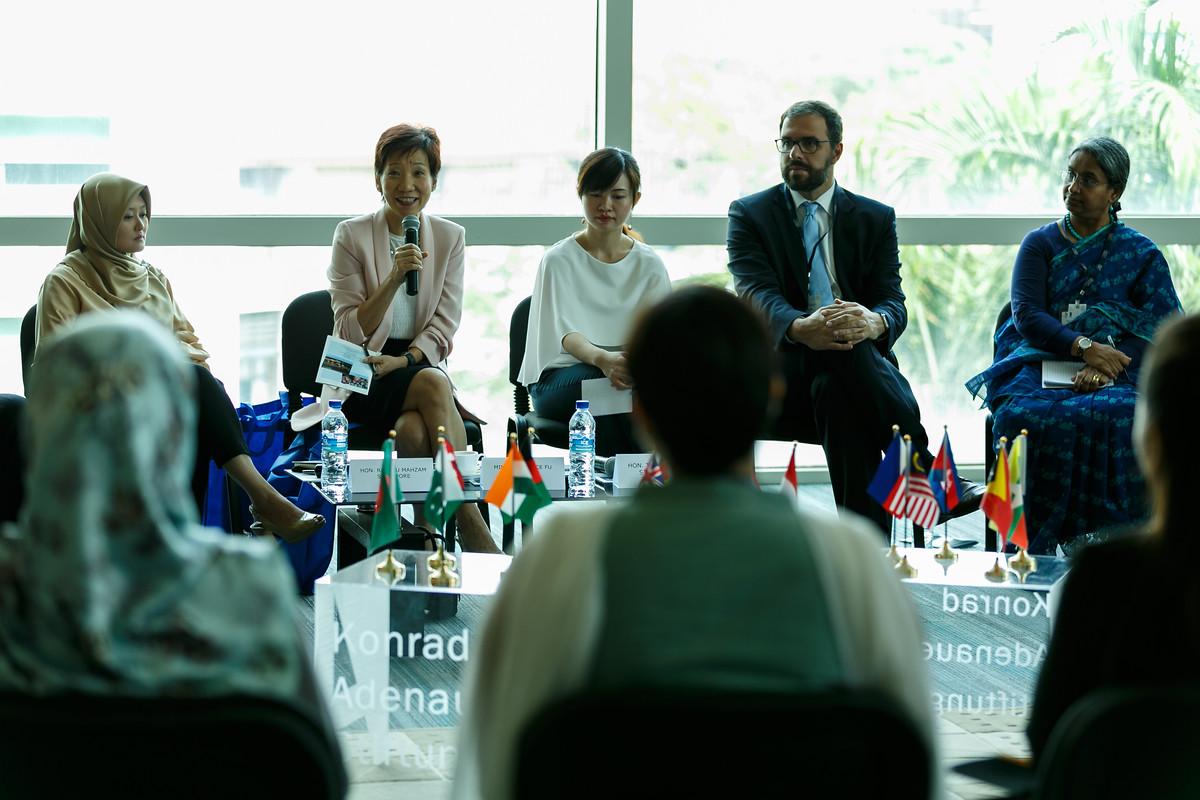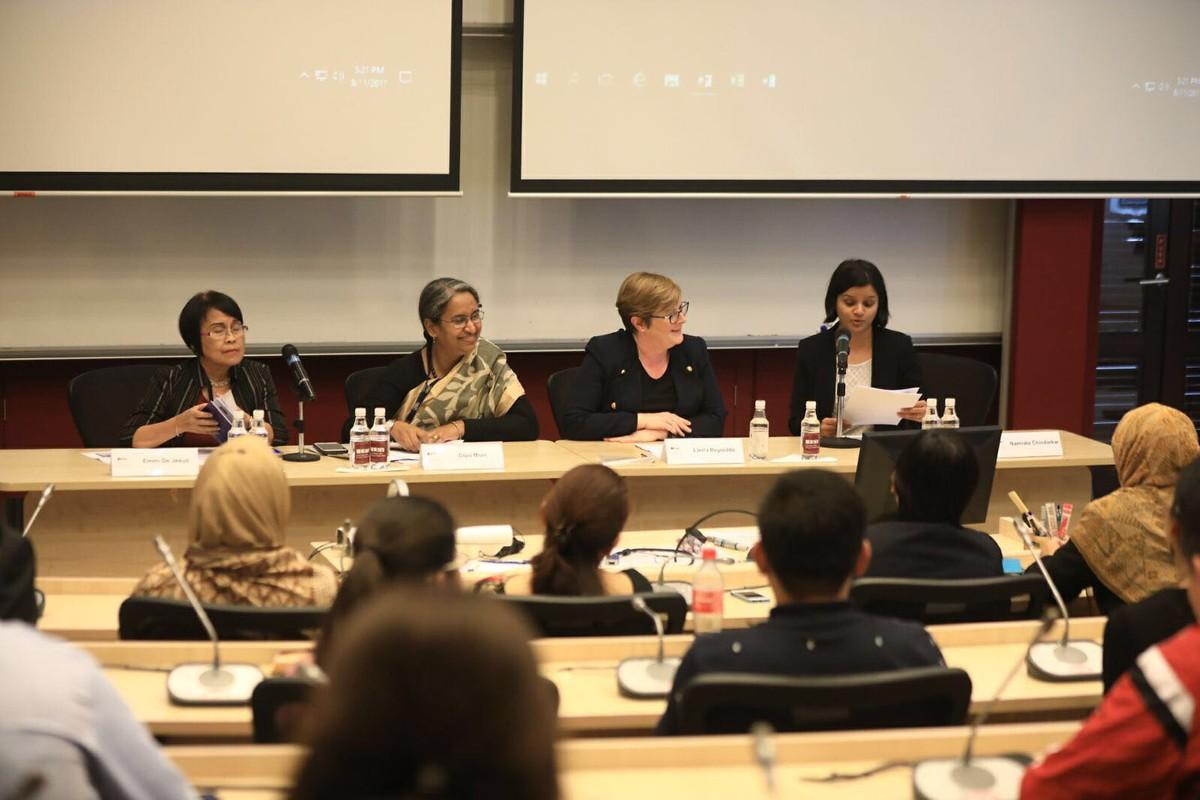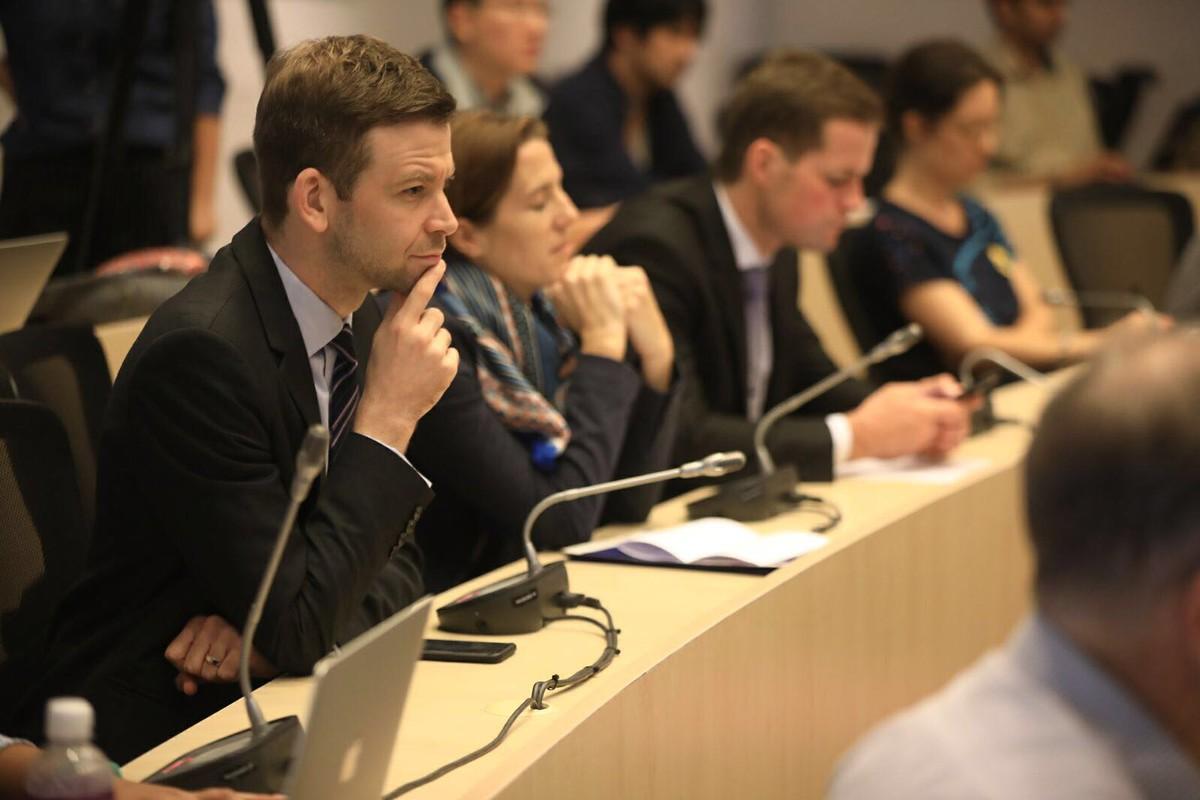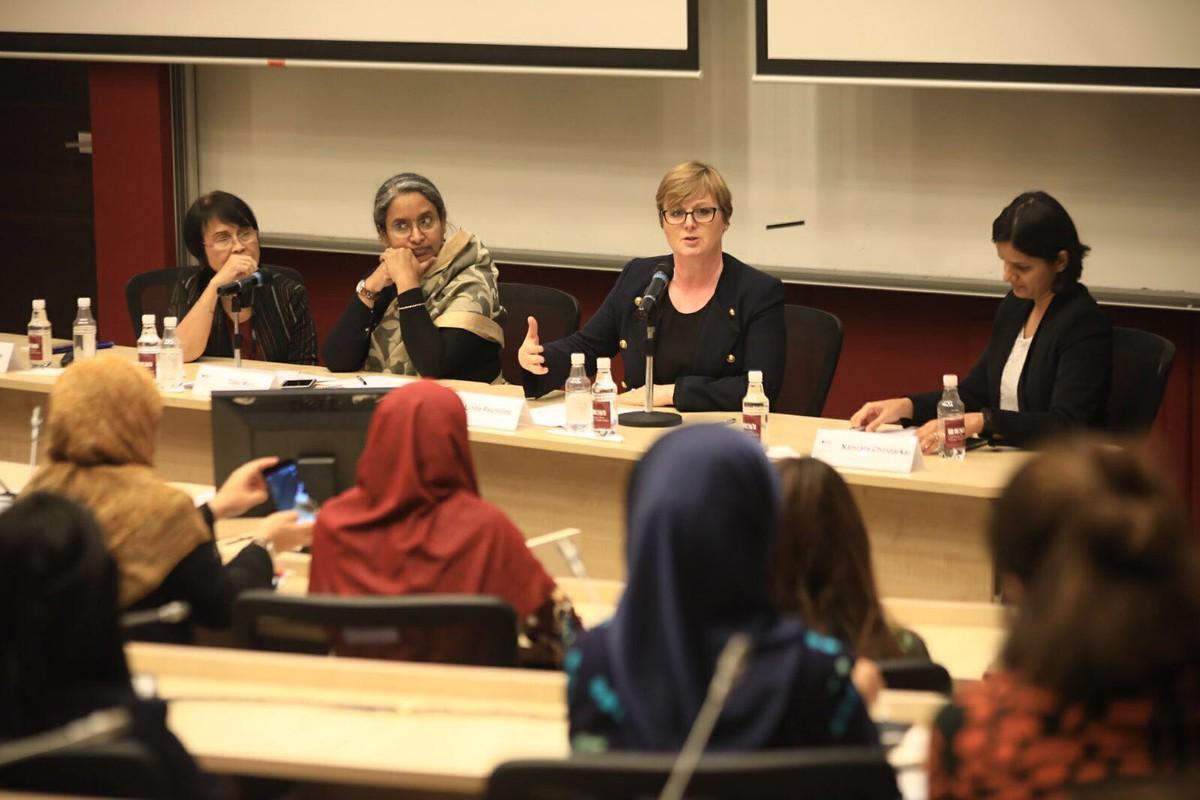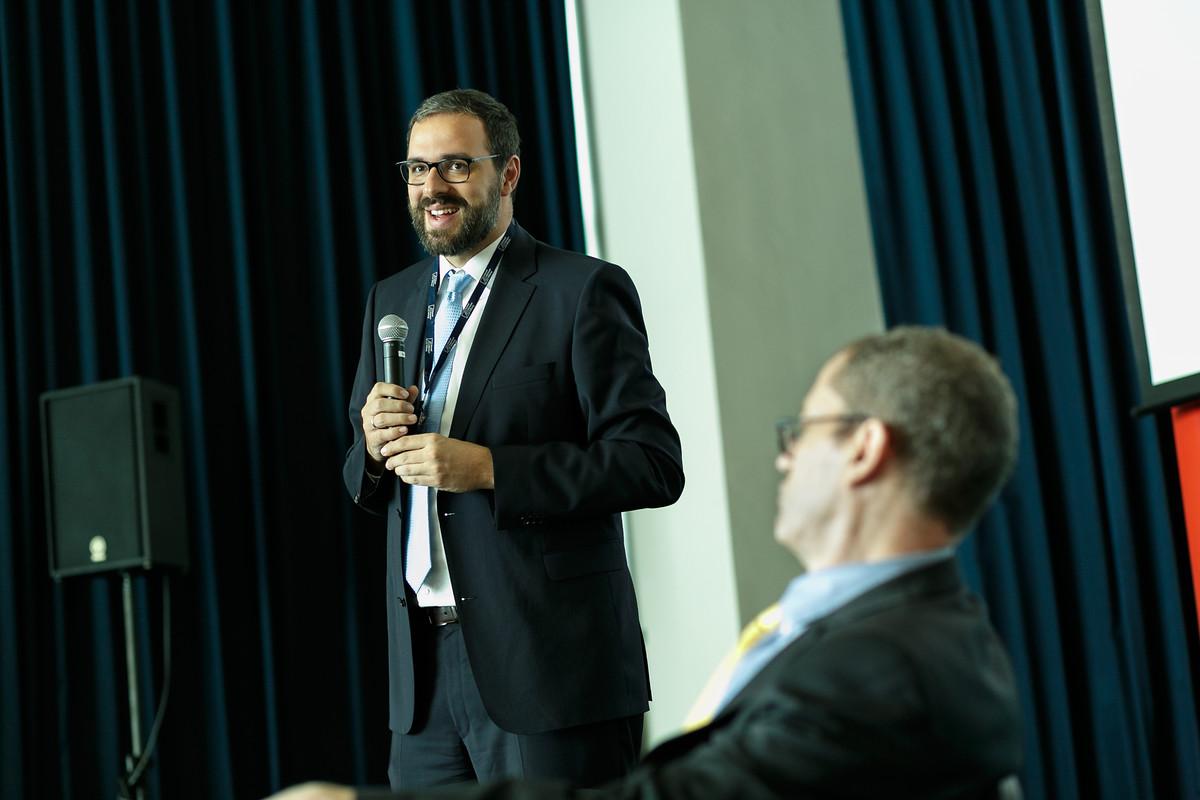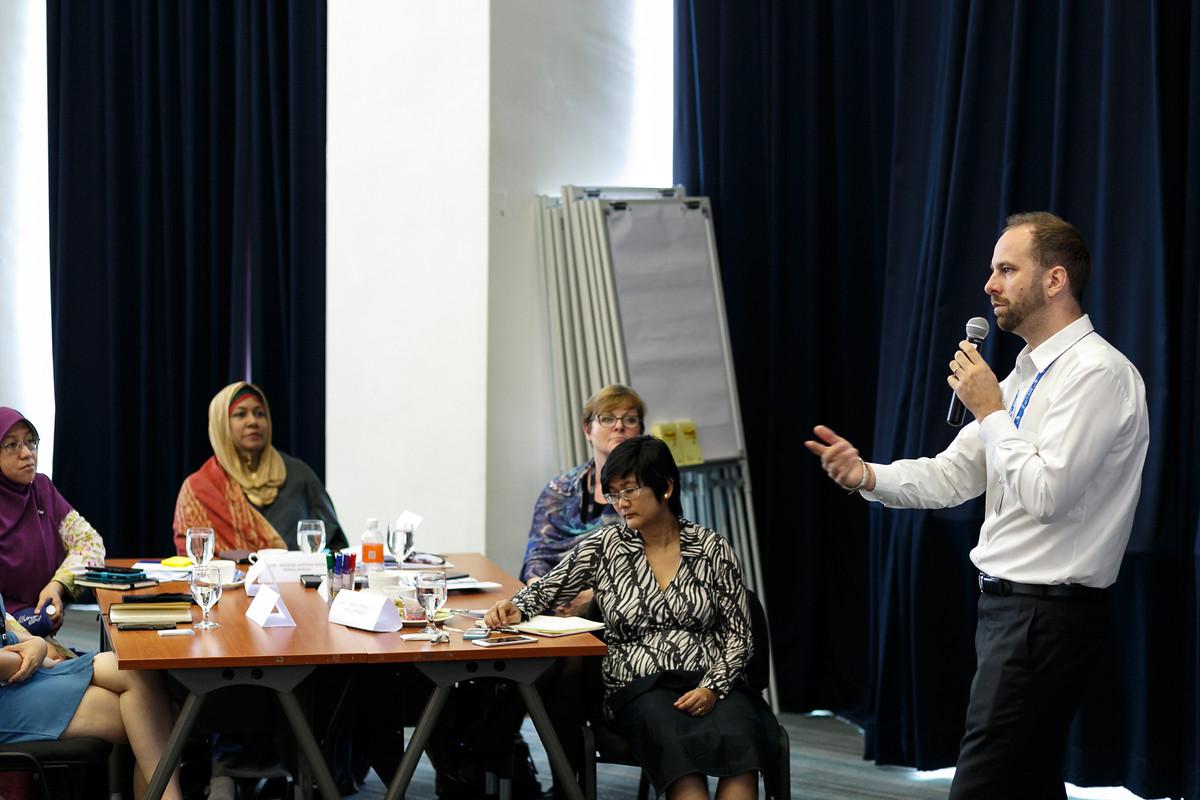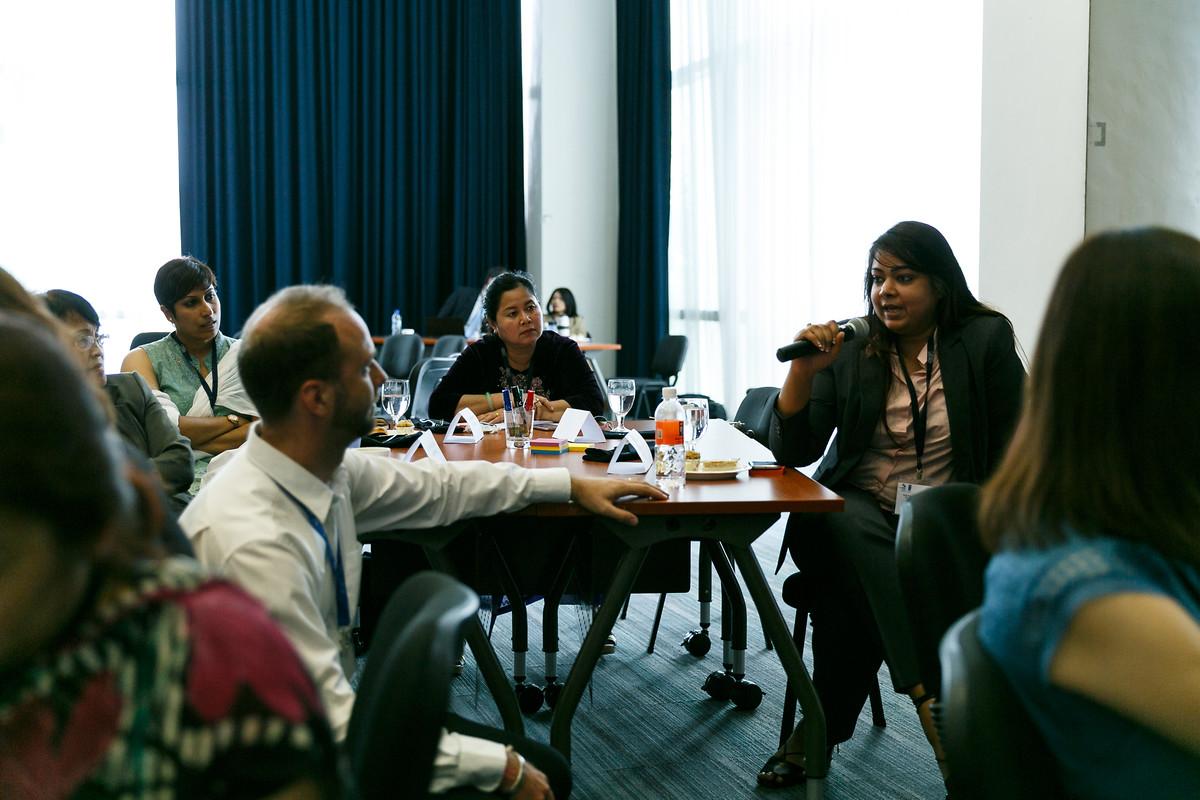A group of 25 female political leaders from Asia Pacific met on the 8th of November. Three of our esteemed parliamentarians formed the evening talk panel at the Lee Kuan Yew School of Public Policy (LKYSPP) where the discussion centred on “Arising Issues in Women, Development and Policy in Asia Pacific”. Senator Linda Reynolds of Australia, Hon. Dr Dipu Moni of Bangladesh and Rep. Emmi De Jesus of the Philippines covered top policy concerns for their respective countries and regions. It came as no surprise that despite the varying growth trajectories of the countries and regions represented in the presentations of the panelists, much still remains to be done to achieve gender parity across sectors, not just in politics.
Following a stimulating panel discussion, the delegation had the honour of meeting with Hon. Grace Fu, Minister for Culture, Community & Youth, Singapore and her fellow colleagues – young parliamentarians: Hon. Tin Pei Ling and Hon. Rahayu Mahzam the following day. What is women’s role in society? What are the government reforms in providing adequate work-life balance in Singapore? and what is Singapore’s approach to countering human trafficking? These were some questions addressed in the engaging political dialogue session.
AWPC members were eager to continue discussing the topic with a 1.5 day Strategic Foresight workshop on “The Future of Human Trafficking” at the UNDP Global Centre for Public Service Excellence. Strategic foresight enables public planners to use new ways of thinking about, talking about, and implementing strategic plans that are compatible with the unfolding future. Strategic foresight is the umbrella term for those innovative strategic planning, policy formulation and solution design methods that do not predict or forecast the future, but work with alternative futures. AWPC members therefore underwent a series of brainstorming activities utilising the tools from the Foresight manual and engaged in developing preferred, probable and negative future scenarios when it comes to tackling human trafficking. The meetings then concluded with a timely policy panel on current approaches to anti-human trafficking in Asia by experts around the region. It was surmised that many existing organisations and key initiatives are present to tackle human trafficking in Asia but one central problem that persists is the continuous lack of collaboration of different sectoral actors since this is not a one-dimensional topic. Furthermore, the need to consolidate gender-aggregated data and the adequate interpretation of this data is crucial, alongside sufficient political will.
- About AWPC: The regional network strives to connect women in politics, across parties, to collaborate on relevant policy issues while networking with key experts and parliamentarians working on the issue. The caucus meets annually and gathers parliamentarians and thought thinkers from over 15 Asian countries.



